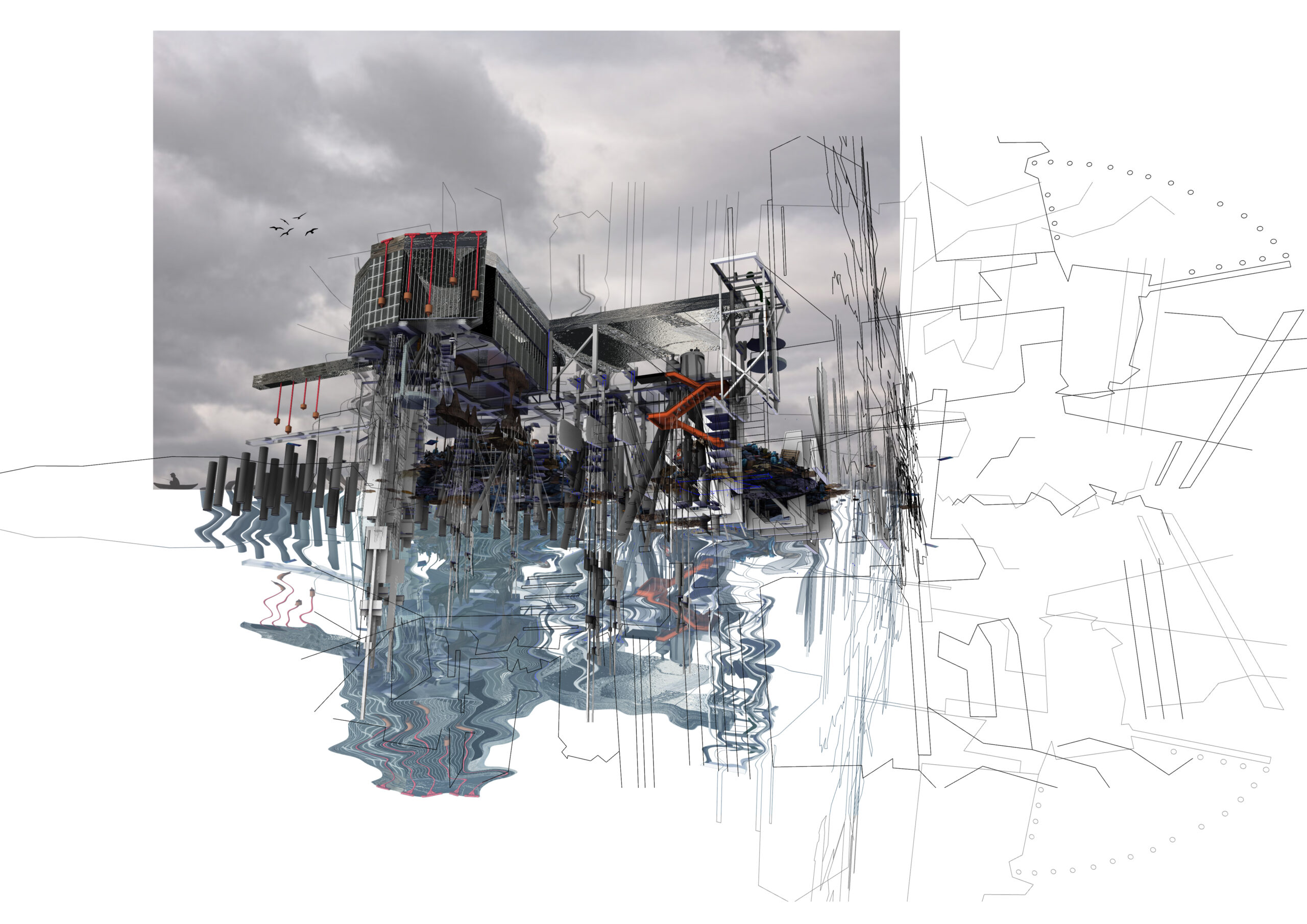This thesis proposes islands as a purgatory. By applying Dante’s journey through purgatory in The Divine Comedy, this thesis proposes the island as a site to visualise modern punishment in a reformed way. Like purgatory, islands are places for the individual to be on a special furlough on earth for a short amount of time. The vicious circle of humanity is being achieved. The thesis identifies three sins of Dante. Situated on the West Coast of Ireland (a place rich in afterlife mythology), and adjacent to the Aran Islands, the islands recontextualise three sins mentioned by Dante (Avarice, Gluttony, and Pride) into a contemporary phenomenon and problem with excessive consumption and material way. The sins are experienced as three new island settings.
The journey through the first island of Avarice is motivated by the human experiential transition from greed to generosity. The second island of Gluttony addresses the sin by visualising the mouth as the conveyor of food and poetry. Hence, the proposal of a culinary/poetry studio that also collects and filters waste. The architecture on the third island addresses the proud souls and waste as exhibition. Through exploring, surveying and drawing the island’s ground fabric, new proposals emerged.
Each island has elements of recompositing found objects at new scales in them. The three islands will become a journey during which the individual reflects on past indulgences and makes amends to the behaviour. They operate between conceptual, literary and environmental concerns. The project develops technology to address the environmental issues of open waters. Each island filters waste. The juxtaposition between waste as pollution and waste as a design piece creates a heterotopic atmosphere. This blurs the line between what is hidden in waste and how it becomes architecture.
‘Waste is the inevitable entropic outcome of what we call progress.’
This reveal influenced the design of the proposals. By placing the thesis in a contemporary context, the modern sin of waste will be investigated. The thesis plays on the likeness between the circularity of Dante’s circles of hell and the circularity of reuse. A path to damnation is not being proposed in this thesis. It proposes a path to a place of renewal and self-renovation.
